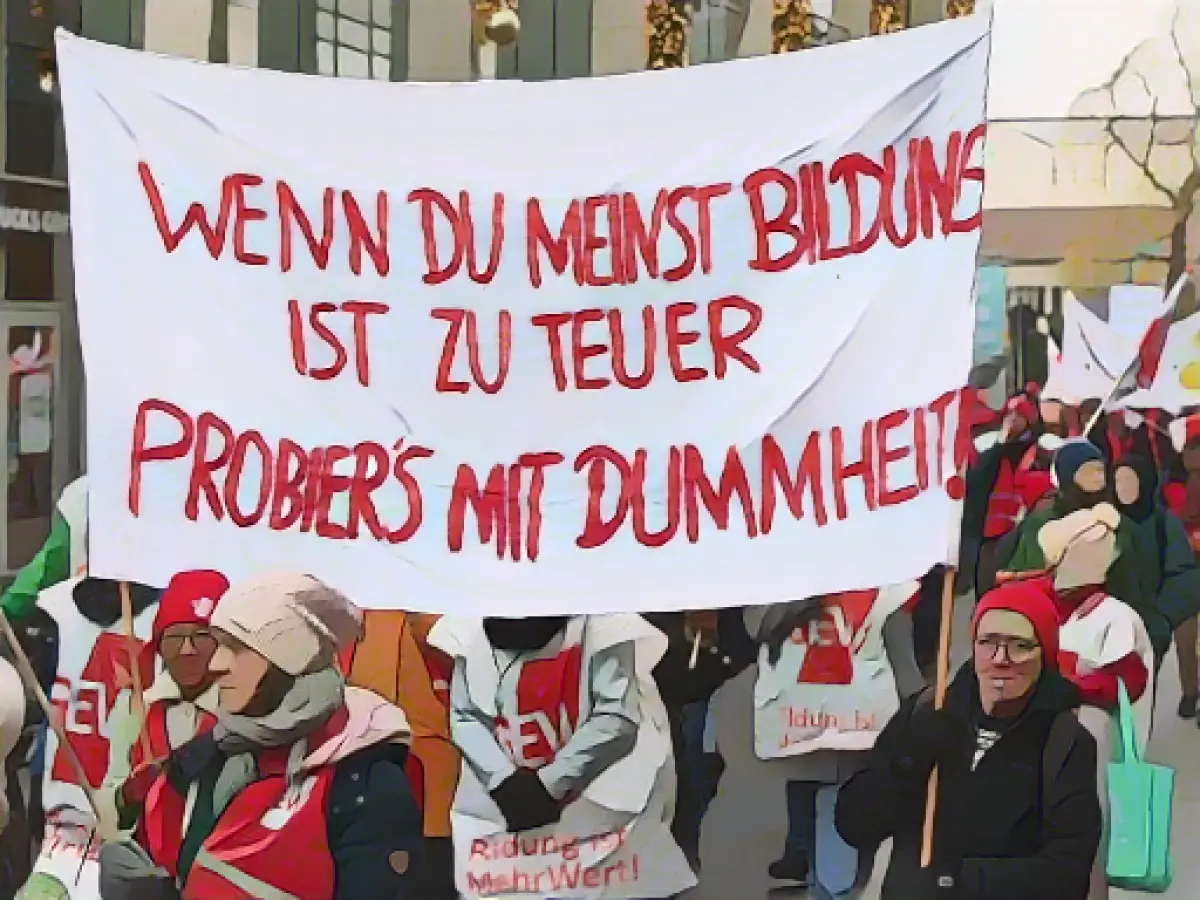GEW: 20,000 teachers and educators on warning strike
Almost 20,000 employees of educational institutions across Germany walked off the job on Tuesday in the wage dispute in the public sector of the federal states. This was announced by the Education and Science Union (GEW) at midday. According to GEW, around 7,000 employees from schools, daycare centers and universities as well as social workers in youth, health and social services offices took part in the warning strike in Leipzig alone. In Berlin, there were 6,000 strikers and thousands also went on strike in other cities. The warning strike was supported by protests and rallies in Berlin, Hamburg, Leipzig and Karlsruhe.
"If employers don't wake up now and pay their colleagues in the public sector decently and fairly, the shortage of skilled workers will get worse," said GEW board member Doreen Siebernik in Leipzig. The work of employees in educational institutions is indispensable. "At the same time, they are suffering from the enormous shortage of skilled workers. Inflation has also left its mark on them," said GEW Chairwoman Maike Finnern.
According to the Bertelsmann Foundation's "Ländermonitoring Frühkindliche Bildungssysteme" (State Monitoring of Early Childhood Education Systems), the shortage of skilled workers is particularly noticeable in daycare centers. According to the report, there is a nationwide shortage of around 430,000 daycare places despite the legal entitlement to a childcare place.
The trade unions are demanding a 10.5 percent pay rise for the approximately 1.1 million public sector employees in the federal states, but at least 500 euros a month more. The unions also want a collective agreement for all student employees. The collective agreement is to run for twelve months. The Tarifgemeinschaft deutscher Länder (TdL) did not present an offer in the second round of negotiations at the beginning of November. The third round of negotiations will take place on December 7 and 8 in Potsdam.
The ongoing wage dispute sparked demonstrations and rallies, with GEW members from universities and schools partaking. This was evident in cities like Berlin, where 6,000 educators joined the strike, and Leipzig, where over 7,000 participated, including employees from schools, universities, and social services. The GEW is using these demonstrations to emphasize the importance of education and fair compensation, as represented by their demands for a significant pay rise and a collective agreement for student employees.
Source: www.dpa.com








